Paul Morris is a graphic designer and writer who collects album art of the 1940’s and 1950’s. He finds his examples of influential mid-century design in the used record stores of Portland, Oregon.
This humorous edition features a “disturbing” and fascinating trend in 1950’s album art — Records on the Floor!
__________
Some readers may recall my January column, in which 1950s consumers were holding, displaying, and communing with their records. This time we visit that decade again, to explore a disturbing and fascinating trend in album art: Records on the Floor.
In January I noted how the record companies frequently urged buyers to handle their vinyl treasures with care. The admonitions often appeared on the inner sleeve. Below is what Capitol taught, including how to spread the album jacket by pressing it lightly against your body. But the art directors didn’t get the message. They liked to show people relaxing around the record player with not a care about inner sleeves, scratches, or fingerprints. These consumers were quite fond of scattering their albums on the floor — someone’s idea of fun!
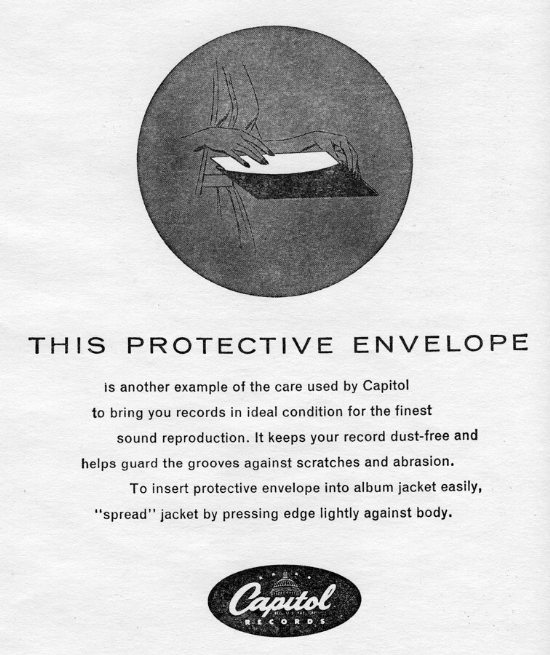
__________
These kids can be excused if they did this without their parents’ knowledge. In Songs for Children the redhead likes to watch the colored record spin as he listens. In Kiddie Favorites the phonograph is an oldie.
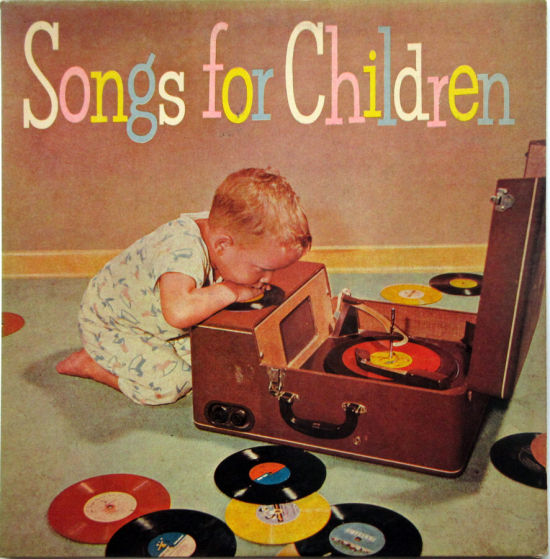
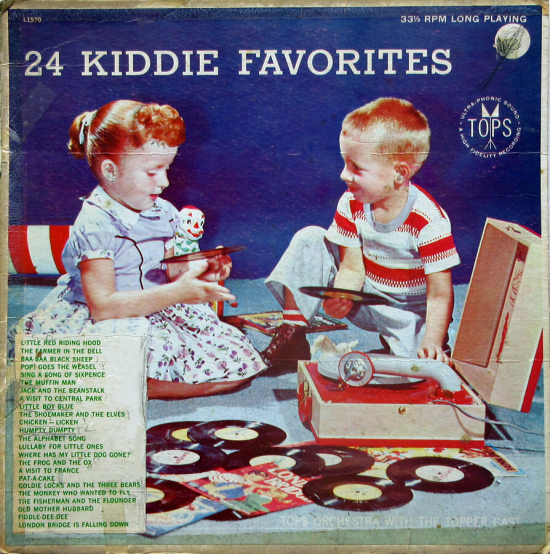
__________
Here we have family night around the record player, with just a few items on the floor. Some of the cuts on this sampler album are fairly hip jazz, such as Jimmy Cleveland and Terry Gibbs. Was Dad into bebop?
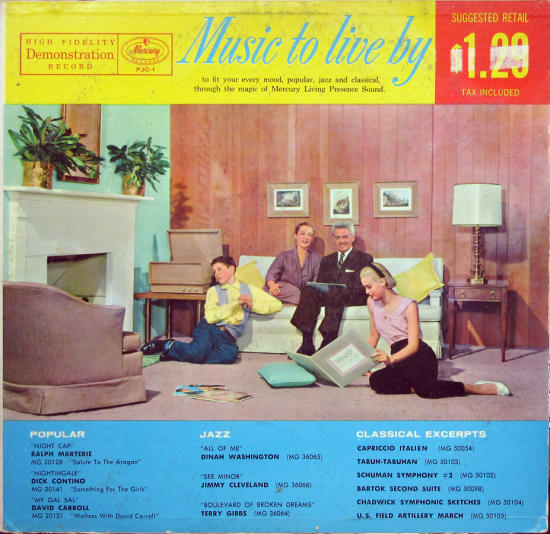
__________
Nothing like slipping into a nightgown and slipping some records out of their jackets. The lady on the floor is holding a framed picture while gorging on Montovani. That shag rug will really get those records dirty! At least three of the discs have cover art by Alex Steinweiss.

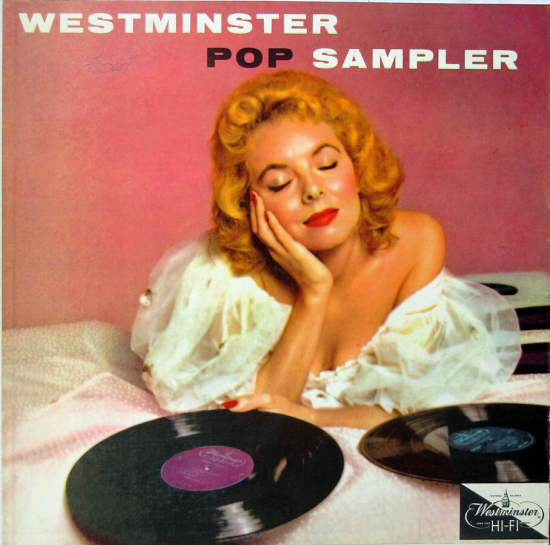
__________
In a 1959 slumber party these girls spread the vinyl around. Note the modern chair.
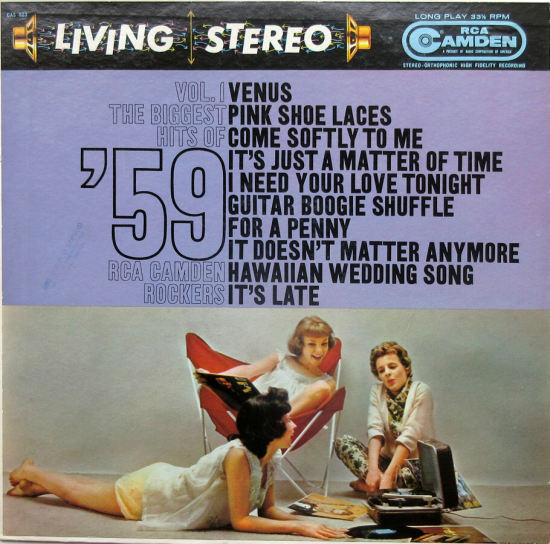
__________
I guess elegance is not incompatible with mistreating records, if this picture is to be believed. The Tchaikovsky lover has poured a martini and settled down on what could be a proto-futon.
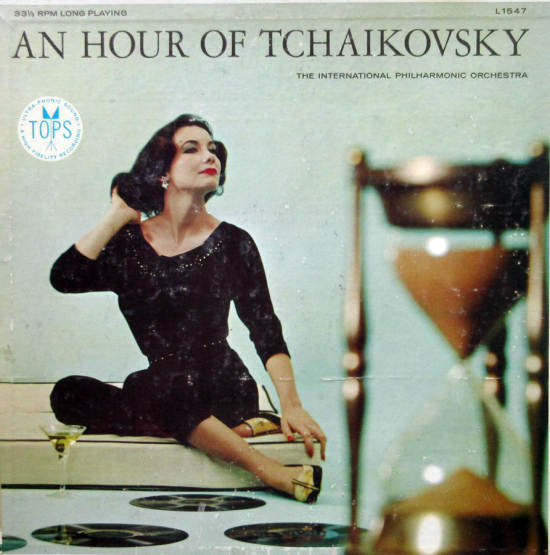
__________
A shag rug, Frankie Laine, and records on the floor: that was romance. I don’t recall the bracelet worn above the elbow in the 1950s. Was that a thing?
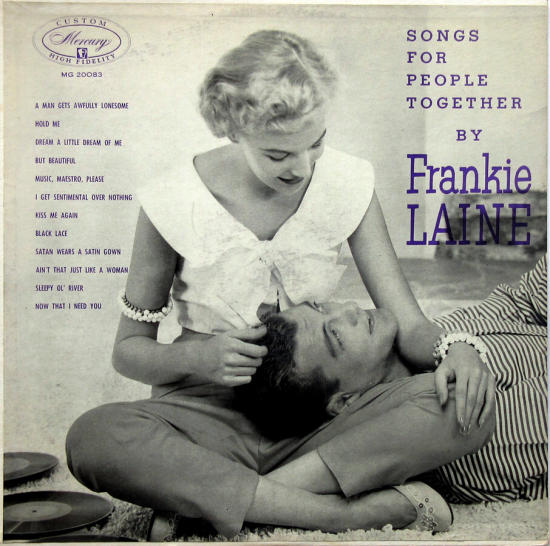
__________
These kids are ecstatic about the hits of the day and pretty careless with their records. There’s a Coke bottle just poised to spill on a record. Tops was a budget label, so perhaps no big loss. Another nice mid-century chair.

__________
These young Christians seem to be singing, but they aren’t the artists on the album. One of the selections is by a group with a great name, Thurlow Spurr and The Spurrlows. The record player probably is stereo — it has a detachable speaker. Also memorable is the woman wearing a top with a built-in purse.
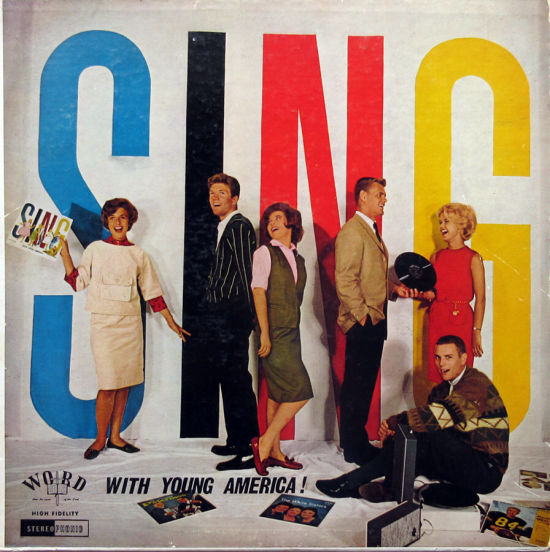
__________
Here the Decca photographer has used the same set — a big record — for dancing couples in two Jan Garber albums. Not exactly records on the floor, but in a similar vein. The four potted plants apparently are to make it clear that the scene is a patio or garden. The table is set with two drinks and, naturally, an ashtray.
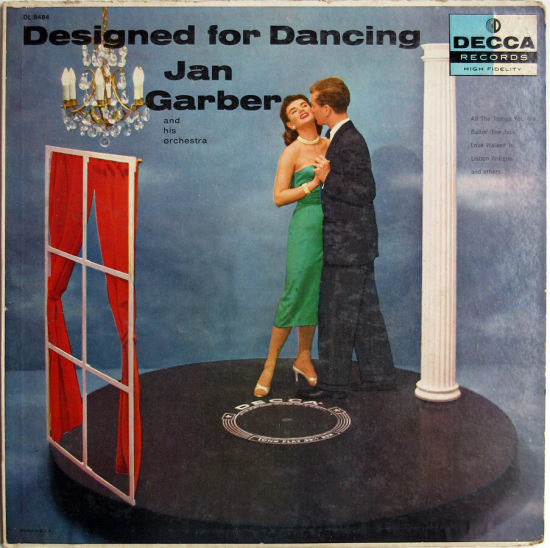
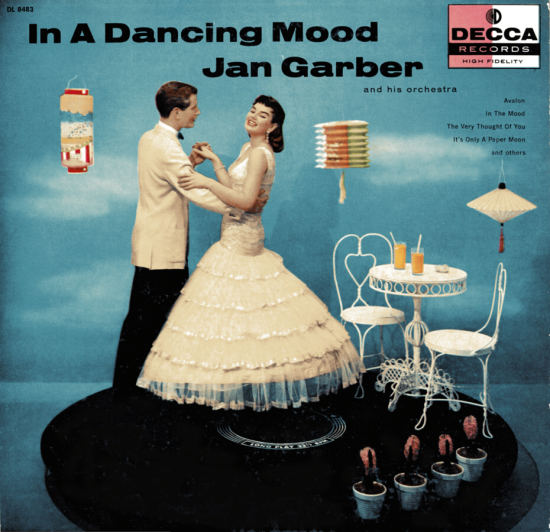
__________
Gus Bivona was a big-band-era holdover who collaborated with Steve Allen and recorded with many top L.A. studio musicians. Looks like someone first came up with the title Deals in Millions, then the art director decided on the bank vault idea.
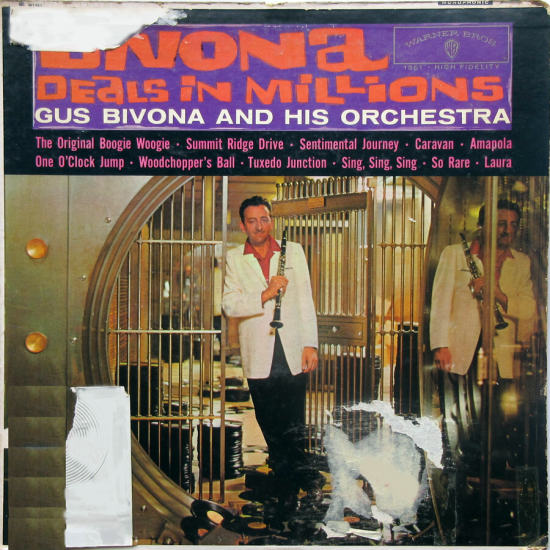
__________
And last a reprise of one of my favorites, because it makes no sense and carries things to an extreme. Incidentally, I snagged this cover because of the sharp eye of Jerry Jazz publisher Joe Maita, who was vinyl shopping with me. He never leaves his records on the floor!
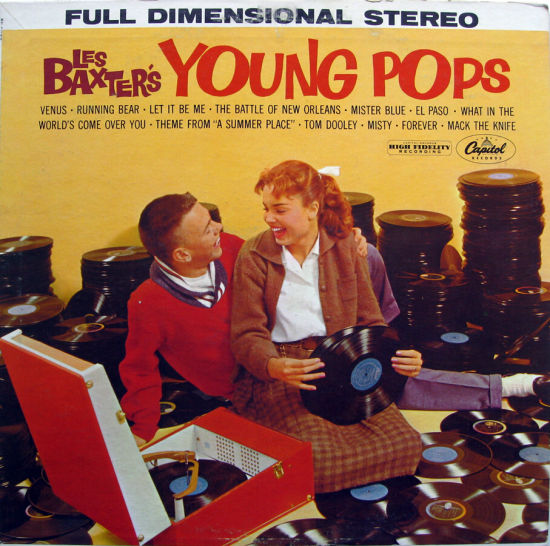
__________
Next time: A varied selection of albums from the RCA label in the 1940s and 1950s
In Volume 1 of “Cover Stories,” Paul shared his collection of covers by Alex Steinweiss, known as the father of the record album cover, and for many years in charge of Columbia Records’ art department.
Volume 2 focused on Columbia covers
Volume 3 featured jazz illustrations from the early years of the record album
Volume 4 revisited the 1950’s with images of fans holding and enjoying their albums
Volume 5 explored the work of Alex Steinweiss when he used the pseudonym “Piedra Blanca”
Volume 6 featured teenagers of the 1950’s enjoying their music
Volume 7 featured Steinweiss album covers from his prime period — the late 1940’s and early 1950’s



































I was around then. The old 78’s, the 33’s, and I had a friend with a battery run record player. We used to take it to the beach and play Heartbreak Hotel by Elvis and Cry Me A River by Ray Charles. What fun, those old memories.
In the days of 10 and 12 inch LPs, many jackets were ”frameble”; the CD artworks
pale before them
Astounding that record companies so often depicted their products strewn on the floor. I have never seen that in real life. Maybe it’s because I just hang around with record lovers who would never do such a thing.
Thanks for the great album covers and this terrific series.